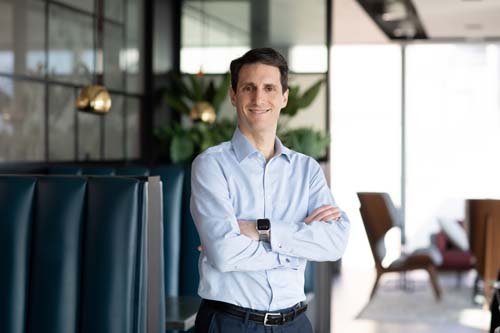Artificial intelligence and machine learning
Bioinformatics
Blockchain and distributed ledgers
Communications and networks
Computer games
Data and software security, cryptography and digital rights management (DRM)
Data management and storage, databases and data compression
Digital assistants, virtual assistants and software agents
Fintech and adtech
Machine vision
Metaverse, virtual reality (VR) and augmented reality (AR)
Motor capture
Multimedia, audio/video processing and animation
Natural language processing
Quantum computing
Robotic process automation
Search engines
Signal processing
Software applications and systems, mobile applications, user interfaces
The software industry presents additional challenges for obtaining patent protection. On top of the usual requirements for novelty and non-obviousness, software is also subject to specific exclusions from patent protection if it implements a business method, administration process, simulation or other use deemed to be non-technical. For example, software focused on buying stocks, or modelling risk, wouldn’t be considered technical. Conversely, computer-implemented inventions that have an external effect on equipment (e.g. engine management systems), improve the operation of a computer (e.g. speed up calculations), or store or process data more efficiently or securely can be protected. Therefore, patent applications for computer-implemented inventions need to be prepared with particular care.
To add another layer of complexity, different intellectual property offices across the world enforce different legislation and rules regarding software inventions. The US, European and UK intellectual property offices all vary in their approach to exclusions for business methods. Careful drafting in consultation with the inventor, and experience with handling excluded subject-matter objections are vital to ensure success.
Every now and then, something wholly different, such as blockchain, AI, or distributed networks enters the market, and patent law often struggles to keep up with the pace of change. Patent attorneys and their clients must keep up-to-date with these developments.
The computing and software team
Software is essential to modern business across all industries. Accordingly, our substantial computing and software team supports a huge variety of clients in differing industries, including insurance, banking, health, and telecommunications.
We offer a hands-on approach to drafting patent specifications for clients across various industries. We prepare patent applications that demonstrate the technical effect of our clients’ products, to maximise their prospects for grant. To do so, we draw from our expert understanding and experience within software and computing industries, with our team having real-world experience as software engineers or consultants, prior to entering the patent world.
We frequently represent clients on international matters, navigating cases before the UK, European and other international intellectual property offices.
“I love the technical and legal challenges of obtaining patent protection for computer implemented inventions. It can be possible to obtain valid patents around the world for this type of technology, but it requires careful analysis and up-to-date knowledge.”

Audiomob is a global audio advertising company originally established in the UK, which produces software to enable ads to play within mobile games without interrupting game play.
Our team has prepared, prosecuted and obtained granted patents for Audiomob’s software and is developing and managing a rapidly growing portfolio across 26 countries.
The award-winning founders and inventors of AudioMob, Christian Facey and Wilfrid Obeng, have grown Audiomob from a start-up to a company with a valuation of over $100 million and place a high value on its patents and collaboration with Boult.
The software industry presents additional challenges for obtaining patent protection. On top of the usual requirements for novelty and non-obviousness, software is also subject to specific exclusions from patent protection if it implements a business method, administration process, simulation or other use deemed to be non-technical. For example, software focused on buying stocks, or modelling risk, wouldn’t be considered technical. Conversely, computer-implemented inventions that have an external effect on equipment (e.g. engine management systems), improve the operation of a computer (e.g. speed up calculations), or store or process data more efficiently or securely can be protected. Therefore, patent applications for computer-implemented inventions need to be prepared with particular care.
To add another layer of complexity, different intellectual property offices across the world enforce different legislation and rules regarding software inventions. The US, European and UK intellectual property offices all vary in their approach to exclusions for business methods. Careful drafting in consultation with the inventor, and experience with handling excluded subject-matter objections are vital to ensure success.
Every now and then, something wholly different, such as blockchain, AI, or distributed networks enters the market, and patent law often struggles to keep up with the pace of change. Patent attorneys and their clients must keep up-to-date with these developments.
The computing and software team
Software is essential to modern business across all industries. Accordingly, our substantial computing and software team supports a huge variety of clients in differing industries, including insurance, banking, health, and telecommunications.
We offer a hands-on approach to drafting patent specifications for clients across various industries. We prepare patent applications that demonstrate the technical effect of our clients’ products, to maximise their prospects for grant. To do so, we draw from our expert understanding and experience within software and computing industries, with our team having real-world experience as software engineers or consultants, prior to entering the patent world.
We frequently represent clients on international matters, navigating cases before the UK, European and other international intellectual property offices.
What sets us apart
We are collegiate in the way we work, disseminating ideas and information across the entire team. This is particularly important in the software space given its inherent complexity and fast-moving regulatory nature. Recent decisions and cases are always discussed as a team, as are hearings and procedures that might affect ongoing patent drafting or prosecution. This enables us to stay at the leading edge of what is important within the ever-changing regulatory space, allowing us and our clients to stay ahead of the curve. We also employ excellent invention mining processes to capture our clients’ inventions. We undertake industry research to remain up-to-date with legislative changes and technical developments.